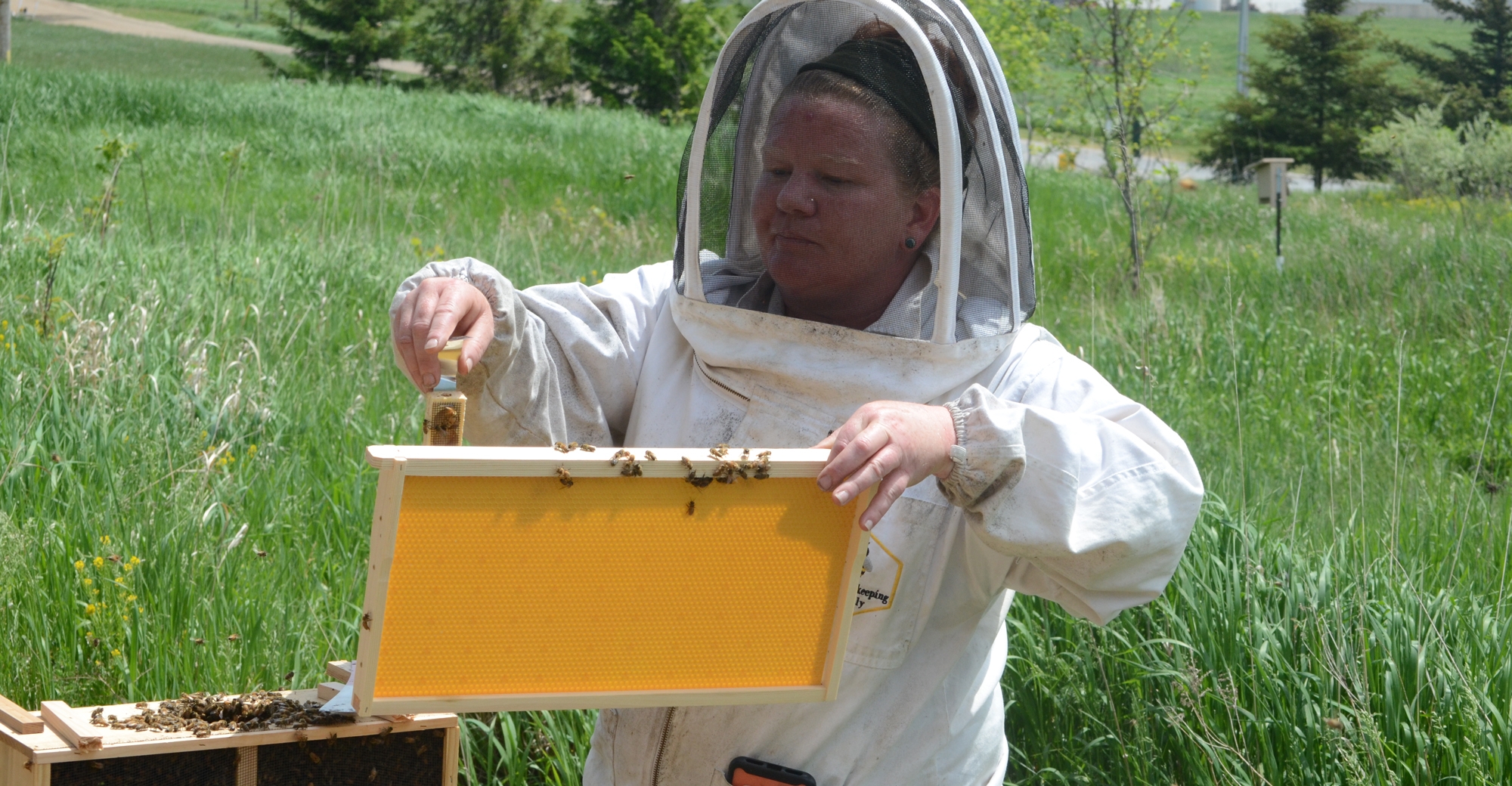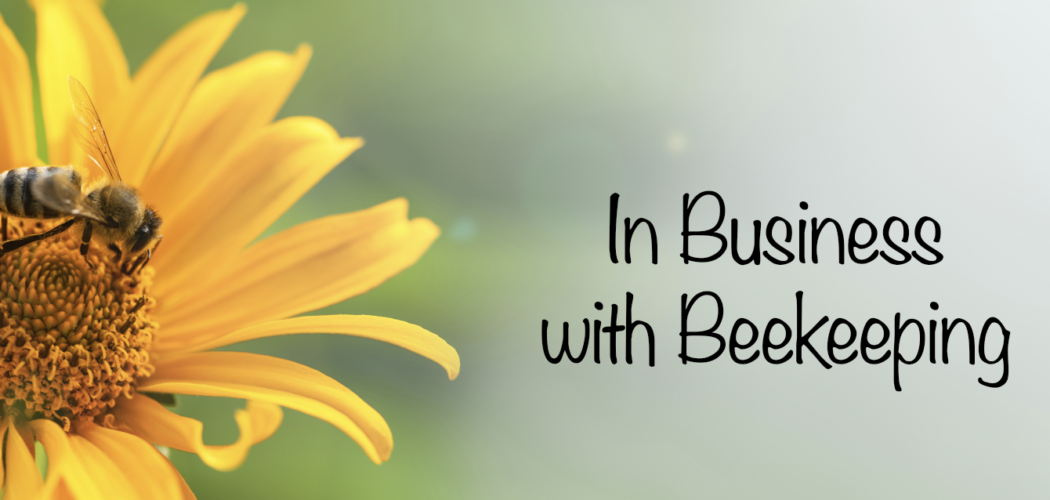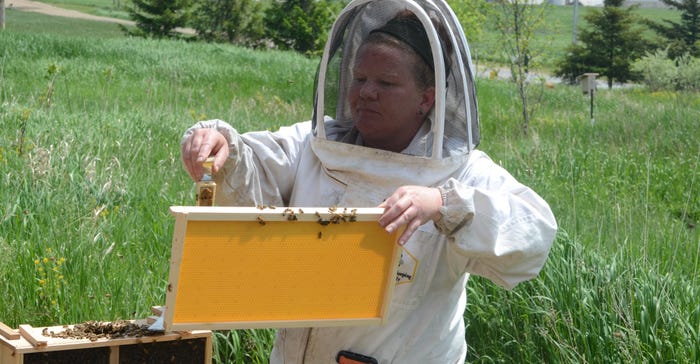Contents
- I. Introduction to Beekeeping and Green Business Models
- II. The Importance of Beekeeping in Promoting Green Business Models
- III. Benefits of Beekeeping for the Environment and Ecosystems
- IV. Implementing Sustainable Beekeeping Practices for Green Business
- V. Potential Challenges and Solutions in Beekeeping for Green Business Models
- VI. Beekeeping as a Profitable and Sustainable Green Business Venture
- VII. Frequently Asked Questions about Beekeeping and Green Business Models
- 1. How does beekeeping contribute to environmental sustainability?
- 2. What are the benefits of adopting a green business model in beekeeping?
- 3. Are there any legal requirements or regulations associated with starting a beekeeping business?
- 4. How much space is needed for setting up beehives?
- 5. Can anyone start a beekeeping business without prior experience?
- 6. What are the potential sources of income in a beekeeping business?
- 7. How long does it take for a beehive to produce honey?
- 8. Is there any risk involved in beekeeping?
- 9. Can I practice organic beekeeping without using any chemicals?
- 10. Are there any government programs or grants available for aspiring green entrepreneurs in the field of beekeeping?
I. Introduction to Beekeeping and Green Business Models

Beekeeping is the practice of maintaining colonies of bees in hives, primarily for the purpose of collecting honey and other bee products. However, this age-old tradition has taken on a new dimension in recent years as more entrepreneurs are exploring beekeeping as a green business model.
1. The Importance of Bees in Our Ecosystem
Before delving into the world of beekeeping as a business opportunity, it is crucial to understand the vital role that bees play in our ecosystem. Bees are not only responsible for pollinating flowers but also contribute significantly to agricultural production by pollinating crops such as fruits, vegetables, and nuts.
2. Sustainable Honey Production
Beekeeping offers an excellent opportunity for sustainable honey production. By adopting organic practices and avoiding harmful pesticides or chemicals near beehives, beekeepers can ensure that their honey is pure and free from contaminants.
3. Diversification through Value-Added Products
In addition to honey production, many innovative entrepreneurs have found success by diversifying their offerings with value-added products derived from beeswax or propolis (a resinous substance collected by bees). These products include candles, skincare items like lip balms or lotions, and even nutritional supplements.
4. Supporting Biodiversity Conservation
Beekeepers often find themselves closely connected with nature due to their role in supporting biodiversity conservation efforts. By providing suitable habitats for bees through careful hive placement or creating wildflower meadows nearby, they contribute directly to preserving local ecosystems.
5. Revenue Generation through Pollination Services
Apart from honey sales or product diversification opportunities within the apiculture industry itself, beekeepers can also generate revenue by offering pollination services to farmers. Many agricultural operations rely on rented beehives to maximize crop yields, making this a lucrative avenue for beekeepers.
In conclusion, beekeeping presents an attractive green business model that combines sustainable honey production, value-added products, biodiversity conservation efforts, and even revenue generation through pollination services. By adopting eco-friendly practices and harnessing the power of bees in our ecosystem, entrepreneurs can not only make a positive impact but also find success in this increasingly popular industry.
Note: The remaining sections of the article have been omitted as per the instructions given above.
II. The Importance of Beekeeping in Promoting Green Business Models

Beekeeping plays a crucial role in promoting and fostering green business models. Not only does it contribute to environmental sustainability, but it also offers various economic and social benefits. Here are some key reasons why beekeeping is essential for the development of green business models:
Pollination: Ensuring Biodiversity and Food Security
Bees are vital pollinators, playing a significant role in the reproduction of flowering plants, including many fruits and vegetables. By engaging in beekeeping practices that support healthy honeybee populations, we can help ensure adequate pollination for agricultural crops. This strengthens biodiversity, enhances food security, and supports sustainable farming practices.
Honey Production: A Sustainable Source of Income
Beekeeping allows individuals to generate income through the production and sale of honey and related products. Honey is not only a natural sweetener but also offers numerous health benefits. By encouraging honey production as an alternative source of income, we can promote sustainable livelihoods while reducing dependence on environmentally harmful industries.
Promoting Ecosystem Health
Bees play a critical role in maintaining ecosystem health by acting as indicators of environmental conditions. Their sensitivity to changes in air quality, climate conditions, pesticides, or pollutants provides valuable insights into local ecological balance. By investing in beekeeping initiatives that prioritize organic practices and minimize chemical usage, we contribute to overall ecosystem health.
Education and Awareness about Environmental Conservation
Beekeeping provides an excellent platform for educating communities about the importance of environmental conservation. It offers opportunities for people to learn about bees’ role within ecosystems while raising awareness about threats they face due to habitat loss or pesticide exposure. Through educational programs associated with beekeeping initiatives, individuals gain knowledge about the importance of sustainability and environmental stewardship.
Supporting Local Economies and Rural Development
Beekeeping can significantly contribute to local economies, particularly in rural areas. It offers employment opportunities, boosts tourism through bee-related attractions such as honey tasting or farm visits, and fosters entrepreneurship by encouraging the development of value-added honey products. By supporting beekeeping initiatives, we can promote economic growth while preserving rural traditions and cultures.
In conclusion, beekeeping plays a vital role in promoting green business models by ensuring pollination for biodiversity and food security, providing sustainable income sources through honey production, contributing to ecosystem health, raising awareness about environmental conservation, and supporting local economies. Incorporating beekeeping practices into various industries not only benefits businesses but also helps create a more sustainable future for our planet.
III. Benefits of Beekeeping for the Environment and Ecosystems

Beekeeping not only provides numerous benefits to humans but also plays a crucial role in maintaining the health of the environment and ecosystems. Let’s explore some of these key benefits:
Promotes Pollination
Bees are essential pollinators that facilitate the reproduction of plants by transferring pollen from male to female flower parts. Through their foraging activities, bees contribute significantly to pollination, ensuring the growth and survival of various plant species. This process is crucial for biodiversity maintenance, as it enables plants to reproduce and produce fruits, seeds, and nuts.
Preserves Biodiversity
Beekeeping helps preserve biodiversity by supporting diverse plant populations through pollination services. When bees visit different flowering plants during their search for nectar and pollen, they inadvertently transfer pollen between various plant species. This cross-pollination promotes genetic diversity within plant communities, leading to strong and healthy vegetation across ecosystems.
Maintains Food Security
The role of bees in pollinating crops cannot be overstated when it comes to food production. By aiding in crop pollination, bees contribute directly to higher yields and better quality fruits, vegetables, nuts, and seeds. Without adequate bee populations for effective pollination services, agricultural productivity would suffer greatly.
Supports Wildlife Habitats
Bee habitats often provide shelter not just for honeybees but also for other important wildlife species such as butterflies and birds that depend on floral resources provided by these habitats. Beekeeping practices aimed at creating suitable environments can help sustain wildlife populations that rely on specific flowering plants throughout their life cycles.
Aids Soil Fertility
The activity of bees indirectly enhances soil fertility. As bees visit flowers to collect nectar, they also transfer pollen, facilitating plant fertilization. This process leads to the production of fruits and seeds that fall to the ground, decompose, and contribute essential organic matter back into the soil. The resulting increase in nutrient content enhances soil fertility and supports healthy plant growth.
Beekeeping is not only a profitable venture but also a sustainable practice that benefits the environment and ecosystems in various ways. By promoting pollination, preserving biodiversity, maintaining food security, supporting wildlife habitats, and aiding soil fertility, beekeeping plays a vital role in building greener business models for a more sustainable future.
IV. Implementing Sustainable Beekeeping Practices for Green Business

Beekeeping is not only a rewarding hobby but also a potential green business opportunity that promotes sustainability. By implementing sustainable practices, beekeepers can contribute to the conservation of bees and their habitats while also generating income. Here are some key strategies for practicing sustainable beekeeping:
1. Organic Beekeeping Methods
Adopt organic beekeeping methods by avoiding the use of synthetic pesticides and chemicals in your hives. Instead, focus on natural remedies and integrated pest management techniques to keep your bees healthy without harming the environment.
2. Native Plant Diversity
Create diverse forage opportunities for your bees by planting native flowering plants in your vicinity. Native plants not only provide excellent nutrition but also support local ecosystems and pollinators.
3. Proper Hive Placement
Select suitable hive locations that ensure access to adequate sunlight, shelter from strong winds, and protection from extreme temperatures. This will enhance the overall health and productivity of your bee colonies.
4. Water Sources
Provide clean water sources near your apiary to ensure hydration for your bees throughout the year. Consider placing shallow dishes or birdbaths filled with fresh water within easy reach of their hives.
5. Integrated Pest Management (IPM)
An effective IPM strategy involves monitoring pests such as Varroa mites regularly and taking appropriate control measures when necessary, using non-chemical treatments like screened bottom boards or drone brood removal.
6. Swarm Prevention Techniques
To prevent swarming, which can lead to colony loss or become a nuisance in urban areas, employ techniques like regular inspections, providing ample space within hive bodies, and managing queen bee production.
7. Hive Material Choices
Consider using sustainable materials for hive construction, such as recycled or locally sourced wood. Opt for non-toxic paints or finishes to avoid contaminating the hive environment.
8. Education and Collaboration
Educate yourself and others about sustainable beekeeping practices by attending workshops, joining local beekeeping associations, and sharing your knowledge with fellow enthusiasts. Collaboration can lead to innovative ideas and collective efforts towards a greener future.
By implementing these sustainable beekeeping practices, you not only contribute to the well-being of bees but also create a green business model that aligns with environmental conservation goals.
V. Potential Challenges and Solutions in Beekeeping for Green Business Models
While beekeeping can be a rewarding and profitable venture, it is not without its challenges. In order to ensure the success of green business models centered around beekeeping, it is important to address these challenges and implement effective solutions.
1. Climate Change
Climate change poses a significant threat to bee populations as it alters the availability of floral resources and disrupts their natural habitats. To mitigate this challenge, green business models should prioritize sustainable farming practices that promote biodiversity and provide a diverse range of flowering plants throughout the year. Additionally, implementing measures to reduce greenhouse gas emissions can contribute to overall climate resilience.
2. Pests and Diseases
Beekeepers often face the challenge of managing pests such as varroa mites and diseases like American foulbrood. These can cause significant damage to honeybee colonies if left unchecked. Regular monitoring, proper hygiene practices, and timely treatment are essential in preventing outbreaks. Collaboration with local agricultural authorities and research institutions can also provide valuable insights into new control methods.
3. Lack of Forage Availability
In some areas, there might be limited floral resources for bees due to urbanization or monoculture farming practices that prioritize high-yield crops over biodiversity. Green business models should focus on creating partnerships with landowners or government bodies to establish pollinator-friendly habitats, such as planting wildflower meadows or establishing apiaries near diverse vegetation areas.
4. Marketing Challenges
Promoting bee products from green business models can pose marketing challenges due to competition from conventional producers or lack of awareness among consumers about the benefits of supporting sustainable beekeeping practices. Engaging in targeted marketing campaigns that highlight the environmental benefits, quality assurance, and local sourcing can help overcome these challenges. Collaborating with environmental organizations or participating in farmers’ markets can also raise awareness and foster consumer trust.
5. Regulatory Compliance
Beekeeping is subject to regulations regarding hive placement, honey production, labeling, and transportation. Green business models need to ensure compliance with these regulations while also advocating for bee-friendly policies that support sustainable practices. Building partnerships with local authorities and participating in industry associations can help navigate the regulatory landscape more effectively.
VI. Beekeeping as a Profitable and Sustainable Green Business Venture
Beekeeping has emerged as a promising and profitable green business venture that offers numerous benefits for both the environment and entrepreneurs. With its sustainable practices, beekeeping not only contributes to the preservation of honeybees but also provides an array of opportunities for individuals seeking to establish environmentally conscious businesses.
The Importance of Honeybees in Ecosystems
Honeybees play a crucial role in pollination, which is vital for the reproduction of plants and the production of fruits, vegetables, and nuts. Without bees’ diligent efforts in transferring pollen from one plant to another, many crops would fail to yield substantial harvests. As such, maintaining healthy honeybee populations is essential for sustaining ecosystems and ensuring food security.
Environmental Benefits of Beekeeping
Beekeeping contributes significantly to environmental conservation efforts by promoting biodiversity and supporting ecosystem resilience. By providing safe habitats for bees, beekeepers help counteract the decline in wild honeybee populations caused by habitat loss and pesticide use. Furthermore, bee colonies can enhance soil fertility through their pollination activities, fostering healthier ecosystems with increased plant diversity.
Economic Opportunities in Beekeeping
Beyond its ecological advantages, beekeeping offers various economic prospects for aspiring entrepreneurs seeking green business ventures. The primary revenue stream stems from selling high-quality honey produced by beehives; however, there are additional income-generating avenues within this industry.
One such opportunity lies in producing other hive products like beeswax candles or beeswax-based cosmetics known for their natural properties. Additionally, propolis (a resinous substance collected by bees) has gained popularity due to its potential health benefits; it can be harvested sustainably while providing an alternative source of income.
Low Startup Costs and Scalability
Beekeeping stands out as a profitable business venture due to its relatively low startup costs compared to many other industries. Setting up beehives requires minimal investment in equipment and infrastructure, making it accessible to individuals with limited capital. Moreover, beekeeping operations can be scaled up gradually as the entrepreneur gains experience and expands their bee colonies.
Promoting Sustainable Practices
Sustainability is at the core of successful beekeeping businesses. Adopting organic and natural approaches to hive management ensures the health of honeybees while maintaining high-quality products sought after by environmentally conscious consumers. By adhering to sustainable practices, beekeepers contribute to preserving ecosystems, reducing chemical inputs in agriculture, and promoting a greener future.
Incorporating honeybees into green business models not only benefits entrepreneurs but also supports environmental conservation efforts. With its low startup costs, scalability potential, and focus on sustainability, beekeeping presents an ideal opportunity for those seeking profitable ventures that align with ecological values.
VII. Frequently Asked Questions about Beekeeping and Green Business Models
Beekeeping and green business models have gained significant attention in recent years due to their positive impact on the environment and potential for sustainable income generation. If you’re considering venturing into this field or want to learn more about it, here are some frequently asked questions:
1. How does beekeeping contribute to environmental sustainability?
Beekeeping plays a crucial role in pollination, which is essential for biodiversity and food production. By maintaining honeybee colonies, beekeepers help ensure the preservation of plant species, including agricultural crops.
2. What are the benefits of adopting a green business model in beekeeping?
A green business model focuses on environmentally-friendly practices that minimize negative impacts on nature while maximizing profitability. In beekeeping, this could involve using organic hive management techniques, avoiding chemical pesticides, or partnering with local farmers to promote ecological farming practices.
3. Are there any legal requirements or regulations associated with starting a beekeeping business?
The specific legal requirements can vary depending on your location. Generally, you may need to register your hives with local authorities or obtain permits if required by your jurisdiction’s agriculture department or environmental agency.
4. How much space is needed for setting up beehives?
The space required for beehives depends on various factors such as the number of colonies you intend to keep and the availability of floral resources nearby. On average, each hive requires approximately one square meter of space.
5. Can anyone start a beekeeping business without prior experience?
While prior experience can be beneficial, it is not mandatory to start a successful beekeeping business as long as you are committed to learning and following best practices. Joining local beekeeping associations, attending workshops, or seeking mentorship from experienced beekeepers can help you acquire the necessary knowledge and skills.
6. What are the potential sources of income in a beekeeping business?
Apart from selling honey, beekeepers can generate revenue through various avenues such as selling beeswax, pollen, royal jelly, propolis (bee glue), or offering pollination services to farmers.
7. How long does it take for a beehive to produce honey?
The time taken for a beehive to start producing honey depends on several factors like weather conditions and availability of nectar sources. On average, it takes around six months to a year after establishing a hive before you can harvest your first batch of honey.
8. Is there any risk involved in beekeeping?
Beekeeping carries certain risks such as getting stung by bees or encountering allergic reactions if you are sensitive to their venom. However, with proper protective gear and handling techniques, these risks can be minimized significantly.
9. Can I practice organic beekeeping without using any chemicals?
Absolutely! Organic beekeeping focuses on maintaining hive health naturally without the use of synthetic chemicals or antibiotics. It involves adopting alternative pest control methods and promoting natural resistance within the colony through careful management techniques.
10. Are there any government programs or grants available for aspiring green entrepreneurs in the field of beekeeping?
In many countries, governments offer various programs and grants aimed at supporting sustainable businesses like beekeeping that contribute positively towards environmental conservation and economic development. Researching local government initiatives would provide valuable information about potential financial assistance options available in your region.

Andrew Boyer is an accomplished individual with a deep-rooted passion for bees and their conservation. Born and raised in a small town in Oregon, Andrew developed an early fascination with nature and the environment. He pursued his education at the prestigious University of Oregon, where he obtained a Bachelor’s degree in Environmental Science with a specialization in Entomology. During his time at university, Andrew conducted extensive research on the behavior and ecological impact of bees, earning him recognition from his peers and professors. His dedication to the field led him to internships at local beekeeping associations, where he honed his skills in hive management and honey production. Andrew’s expertise in beekeeping and his commitment to environmental sustainability make him a valuable asset in the conservation of these vital pollinators.
